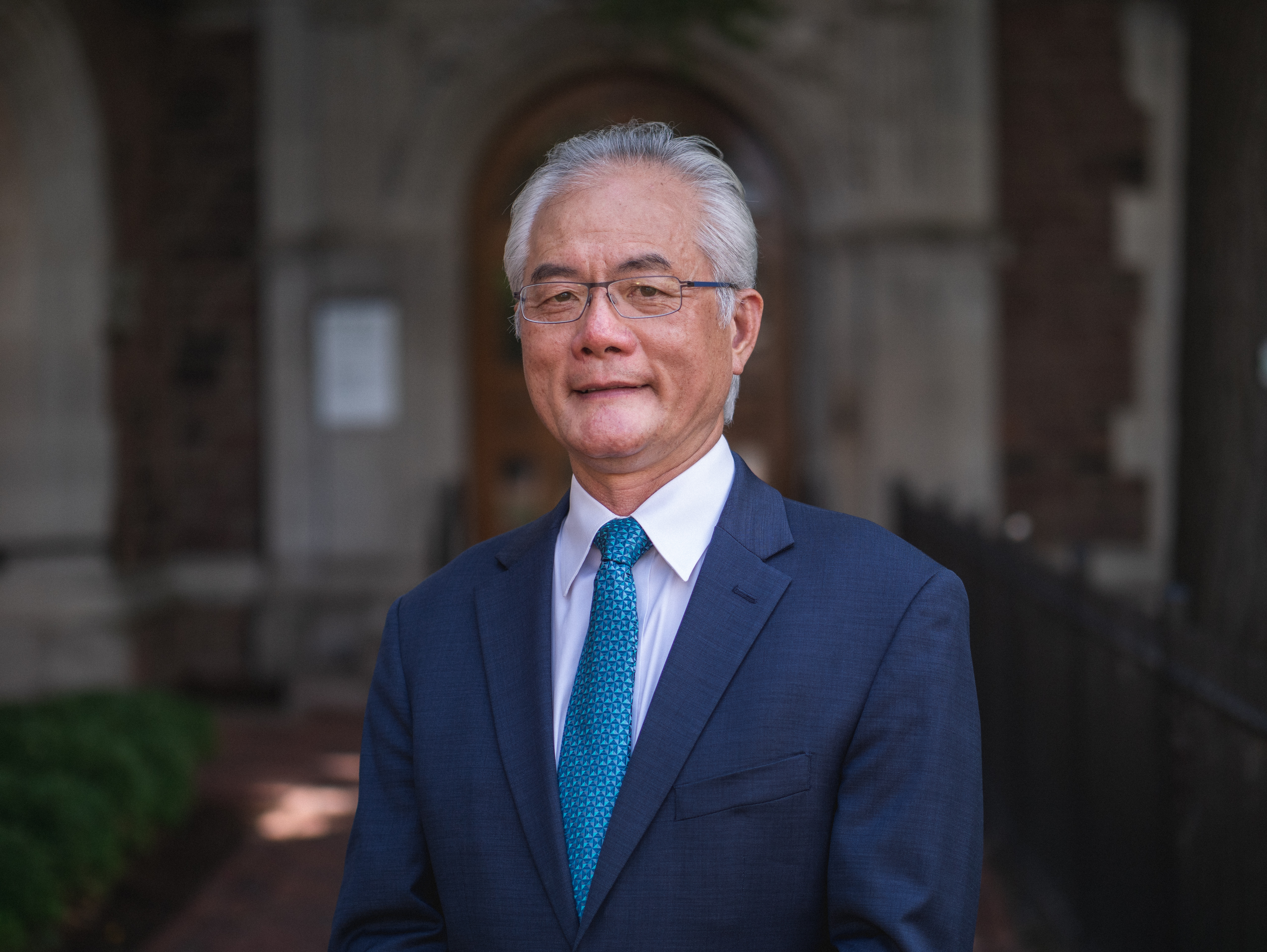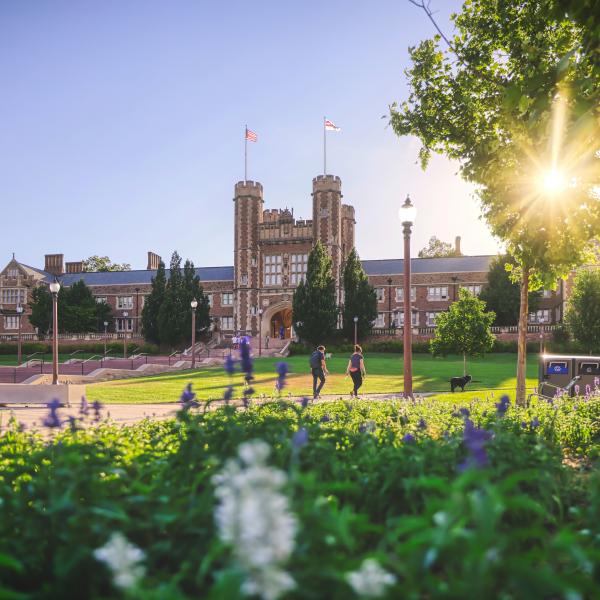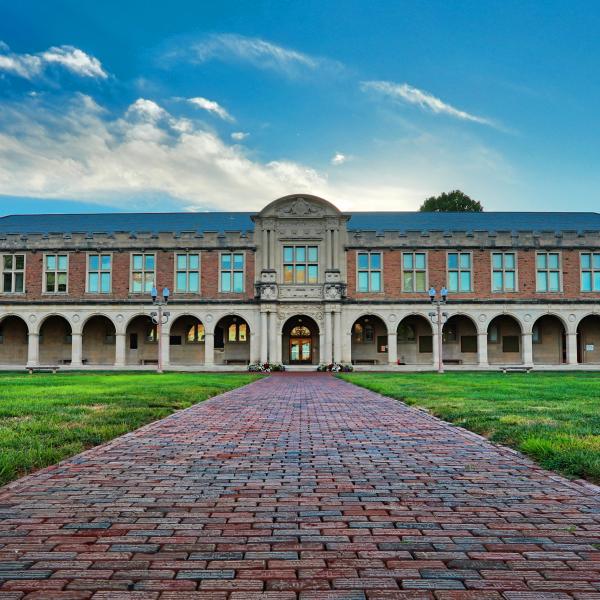The ambitious hiring initiative will recruit interdisciplinary scholars with expertise in digital, spatial, and data sciences.

Under the leadership of Dean Feng Sheng Hu, Arts & Sciences will launch a large-scale hiring initiative aimed at bolstering capabilities in data analytics and digital technologies. Hu, dean of Arts & Sciences and the Lucille P. Markey Distinguished Professor in Arts & Sciences, has approved 14 new faculty searches intended to drive transformative change across the humanities, social sciences, and natural sciences.
This new expertise will bring nimble, creative thinking and new approaches, unlocking novel avenues of investigation and transforming existing fields of study. Critically, the interdisciplinary nature of the faculty searches means that Arts & Sciences will recruit digital and data scientists with an appetite for convergent scholarship that crosses traditional academic boundaries. A hiring initiative of this magnitude brings unprecedented momentum to Arts & Sciences, enriching research capabilities within departments, across the school, and throughout the university.
In November 2020, departments and programs across Arts & Sciences responded to Dean Hu’s call for proposals with plans for nearly 30 new faculty positions. “I was extremely impressed by the strong response we saw across Arts & Sciences,” Hu said. “The proposals were outstanding and innovative, and many of them involved collaborations among multiple units – a trend that I find very encouraging.”
William Tolman, associate dean of research and the William Greenleaf Eliot Professor of Chemistry, chaired the 12-person faculty selection committee that reviewed submissions for the digital transformation initiative. “Expertise in such approaches is of critical importance in Arts & Sciences, especially in view of the prevalence of large data sets and the need to analyze them in innovative ways,” Tolman said. He noted that the committee was particularly impressed by multidisciplinary proposals that “cut across traditional academic boundaries.”
“Expertise in such approaches is of critical importance in Arts & Sciences, especially in view of the prevalence of large data sets and the need to analyze them in innovative ways."
Such proposals include a search for a scholar focused on analyzing large data sets to address problems in aging, cognitive science, and diversity science, led by the Department of Psychological & Brain Sciences. The new faculty member would potentially collaborate with colleagues in Arts & Sciences, the Medical School, and the McKelvey School of Engineering. In a separate search, the Department of Earth and Planetary Sciences will team up with Environmental Studies to seek a geospatial scientist with the goal of using Earth system data to address problems important to science and society: changing climate, stressed agricultural systems, water and energy insecurity, public health, and many others.
Multiple faculty searches within the humanities, including two cosponsored by Film and Media Studies, will benefit from the hiring initiative. “It’s tremendously promising for the humanities,” said Joe Loewenstein, director of the Humanities Digital Workshop and the Interdisciplinary Project in the Humanities. “We’ll have new colleagues to help us do the analytic work that we’ve always valued in new ways.”
“In several fields the faculty had been champing at the bit to recruit colleagues who could deploy virtual reality creatively, submit speculation to computational experiment, and ingeniously deploy machine learning to make sense of large — in the not too distant past, intractably large — data sets,” Loewenstein added.
Going forward, Dean Hu is eager to welcome new talent to Arts & Sciences and solidify the reputation of Washington University as a productive and thriving home for data science and digital technologies.
“I am thrilled with the creativity of the faculty searches and the spirit of collaboration they represent,” said Hu. “It is an important moment to support and encourage emerging areas of research and student interest, and I foresee many new opportunities for convergence and collaboration as we welcome a new cohort of data scientists and digital scholars to Arts & Sciences.”
Approved faculty searches
• African and African-American Studies/Film and Media Studies: Black digital media studies
• Anthropology: digital paleoanthropology
• Biology: computational/data science in biology
• Chemistry: data analytics and chemical theory
• Comparative Literature/English/German/Jewish, Islamic, and Middle Eastern Studies: digital literary studies or cultural analytics
• Earth and Planetary Sciences/Environmental Studies: geospatial Earth science
• East Asian Languages and Cultures/Film and Media Studies: Chinese-language media cultures
• Economics: applied economics
• Linguistics/Classics: computational linguistics with preference for expertise in classical languages
• Mathematics and Statistics: data sciences
• Performing Arts: experimental digital performance
• Physics: astrophysics and high energy physics
• Political Science: comparative politics or international relations
• Psychological & Brain Sciences: aging, cognitive science, or diversity science





